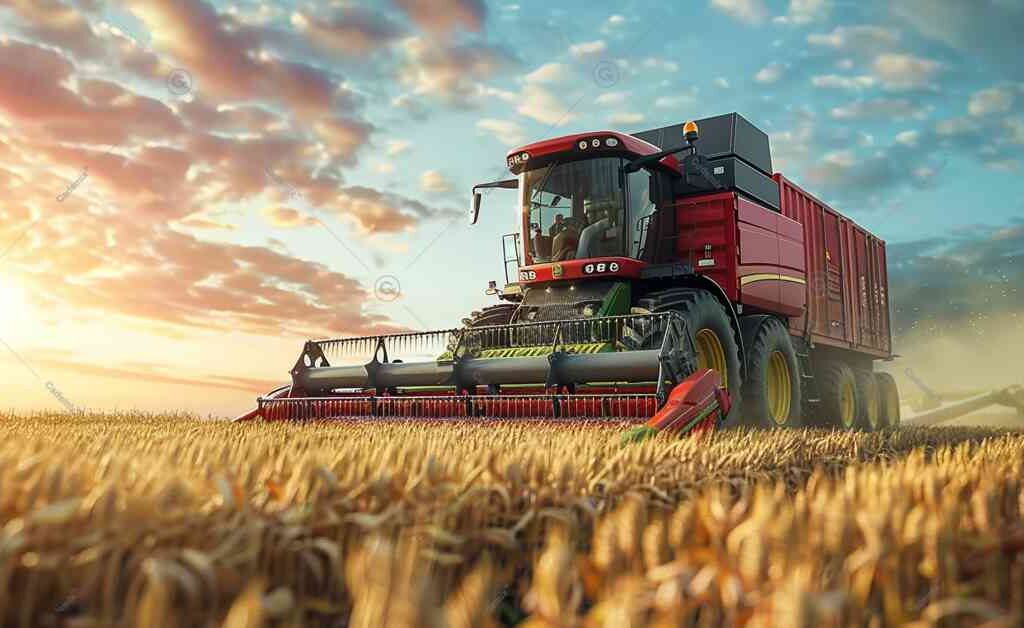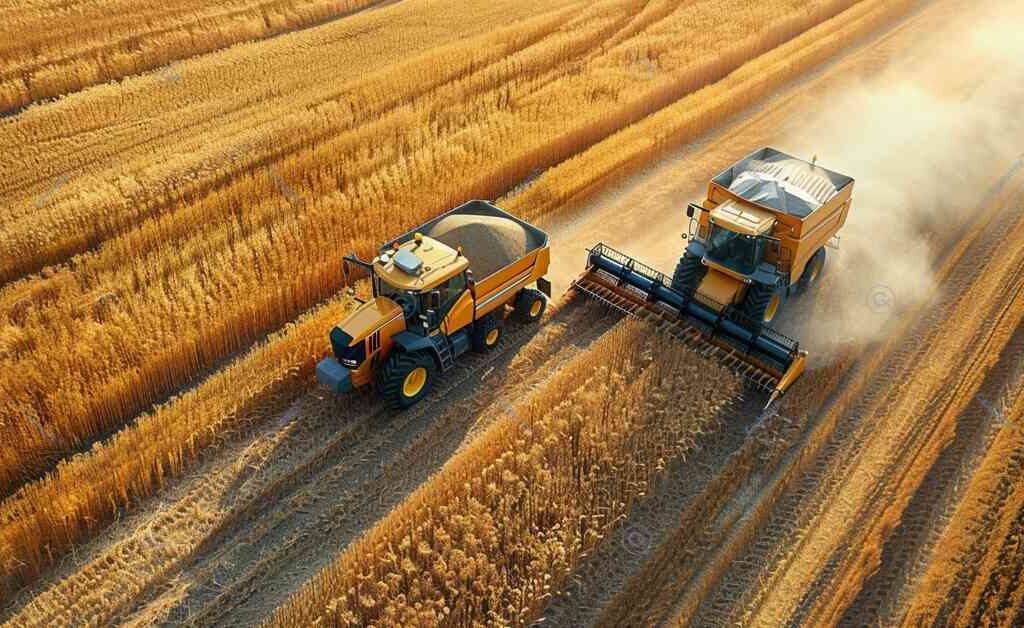Choosing to pursue a Bachelor of Science (B.Sc.) in Agriculture is a significant decision that can open doors to a wide range of career opportunities in the agricultural sector. This degree equips students with the knowledge and skills needed to address the challenges of food production, sustainability, and agribusiness. This article provides an overview of the essential courses in a B.Sc. Agriculture program, explores various career opportunities, and discusses pathways for entering the job market or starting an agricultural business.
Keywords: B.Sc. Agriculture, agricultural courses, career opportunities, agribusiness, agricultural education, agriculture job market, starting an agricultural business
Core Courses in a B.Sc. Agriculture Program
A B.Sc. Agriculture program typically includes a combination of core courses, electives, and practical experiences. These courses cover a broad range of topics essential for understanding the complexities of modern agriculture.

Introduction to Agriculture
- Fundamentals of Agriculture: An introductory course that provides an overview of the agricultural sector, including the history, development, and current trends in agriculture.
- Agricultural Economics: This course covers the economic principles and practices related to agriculture, including market analysis, pricing, and agricultural policy.
- Sustainable Agriculture: Focuses on sustainable farming practices, environmental stewardship, and the principles of organic and regenerative agriculture.
Crop Science
- Principles of Crop Production: Students learn about the basics of crop production, including soil preparation, planting, irrigation, pest management, and harvesting.
- Plant Breeding and Genetics: This course explores the principles of plant genetics, breeding techniques, and the development of new crop varieties.
- Soil Science: Covers the properties and management of soils, including soil fertility, soil conservation, and soil health.
Animal Science
- Animal Husbandry: Students learn about the care and management of farm animals, including breeding, feeding, and health management.
- Veterinary Science: Introduces the basics of animal health and veterinary practices, including disease prevention and treatment.
- Dairy Science: Focuses on the production and management of dairy animals and the processing of dairy products.
Agricultural Engineering
- Farm Machinery and Equipment: This course covers the principles and operation of farm machinery, including tractors, harvesters, and irrigation systems.
- Agricultural Structures and Environmental Control: Students learn about the design and management of agricultural structures, such as barns and greenhouses, and the control of environmental factors like temperature and humidity.
- Precision Agriculture: Explores the use of technology in agriculture, including GPS, sensors, and data analytics to optimize farming practices.
Agribusiness Management
- Principles of Agribusiness Management: Covers the fundamentals of managing agricultural enterprises, including financial management, marketing, and strategic planning.
- Agricultural Marketing: Focuses on the marketing of agricultural products, including market analysis, consumer behavior, and distribution channels.
- Farm Management: Teaches students how to manage farm operations, including budgeting, resource allocation, and risk management.

Practical Experience
- Field Practicum: Provides hands-on experience in various aspects of agriculture, including crop production, animal husbandry, and farm management.
- Internships: Students gain practical experience by working with agricultural businesses, research institutions, or government agencies.
- Research Projects: Opportunities to conduct research on agricultural topics, often culminating in a final project or thesis.
Career Opportunities with a B.Sc. Agriculture Degree
Graduates with a B.Sc. Agriculture degree have a wide range of career opportunities in various sectors. Here are some potential career paths:
Agricultural Research and Development
- Research Scientist: Conduct research to develop new crop varieties, improve agricultural practices, and address challenges such as pest management and climate change.
- Extension Specialist: Work with farmers and agricultural organizations to disseminate research findings and promote the adoption of best practices.
- Laboratory Technician: Assist in conducting experiments and analyzing data in agricultural research laboratories.
Agribusiness and Marketing
- Agribusiness Manager: Manage agricultural enterprises, including farms, processing facilities, and agribusiness companies.
- Agricultural Marketing Specialist: Develop marketing strategies for agricultural products, conduct market research, and manage distribution channels.
- Sales Representative: Work for agricultural supply companies, selling products such as seeds, fertilizers, and equipment to farmers and agribusinesses.
Farm Management and Production
- Farm Manager: Oversee the daily operations of a farm, including crop and livestock production, financial management, and resource allocation.
- Greenhouse Manager: Manage greenhouse operations, including the production of vegetables, flowers, and ornamental plants.
- Organic Farmer: Operate an organic farm, focusing on sustainable and environmentally friendly farming practices.

Government and Non-Profit Organizations
- Agricultural Policy Analyst: Work with government agencies or non-profit organizations to develop and analyze agricultural policies and programs.
- Environmental Consultant: Advise on sustainable agricultural practices and help implement environmental protection measures.
- International Development Specialist: Work with international organizations to promote agricultural development and food security in developing countries.
Pathways to Enter the Job Market or Start an Agricultural Business
After completing a B.Sc. Agriculture degree, graduates can take various pathways to enter the job market or start their own agricultural business.
Entering the Job Market
- Networking and Job Search: Utilize university career services, attend agricultural conferences and job fairs, and connect with professionals in the field through networking platforms such as LinkedIn.
- Resume and Cover Letter: Craft a strong resume and cover letter that highlight relevant skills, experiences, and achievements. Tailor these documents to each job application to demonstrate suitability for the position.
- Interview Preparation: Prepare for job interviews by researching potential employers, practicing common interview questions, and demonstrating knowledge of the agricultural sector and the specific role.
Starting an Agricultural Business
- Business Planning: Develop a comprehensive business plan that outlines the goals, strategies, and financial projections for the agricultural enterprise. This plan should include market analysis, production plans, and risk assessment.
- Securing Funding: Explore funding options such as loans, grants, and investments to finance the agricultural business. Government programs and agricultural development banks often provide financial support for new ventures.
- Building a Brand: Establish a strong brand identity for the agricultural business by developing a unique value proposition, creating a professional logo and website, and engaging in marketing and promotional activities.
Leveraging University Resources
- Alumni Networks: Connect with alumni who have pursued careers in agriculture. They can provide valuable insights, mentorship, and job opportunities.
- Incubators and Accelerators: Participate in university incubator and accelerator programs that support agricultural startups with resources, mentorship, and funding.
- Continuing Education: Consider pursuing advanced degrees or professional certifications to enhance knowledge and skills. Graduate programs in agribusiness, agricultural economics, and related fields can provide additional expertise and career advancement opportunities.
Conclusion and Call to Action
A B.Sc. Agriculture degree offers a comprehensive education that prepares students for a wide range of career opportunities in the agricultural sector. By understanding the core courses, exploring career pathways, and leveraging university resources, students can make informed decisions about their future careers and contribute meaningfully to the field of agriculture.
If you are interested in pursuing a B.Sc. Agriculture degree and exploring the diverse opportunities it offers, consider joining the Cademix Acceleration Program. Our consultancy services and educational programs are designed to support students in achieving their academic and career goals in agriculture.
Discover our Cademix Career Autopilot program and learn how we can help you navigate the complexities of the agricultural industry and build a successful career. For additional resources and insights on agricultural education and career opportunities, visit AgCareers.com and American Society of Agronomy.


